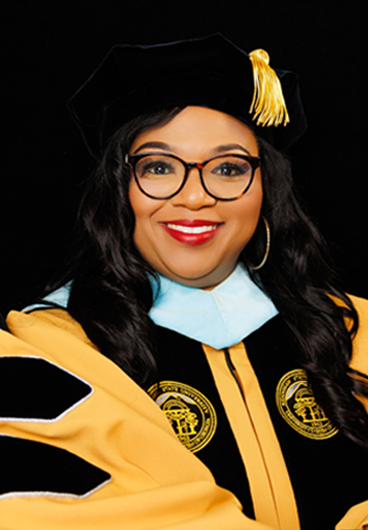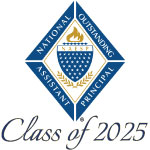
Lakeisha Ector
Callaway Middle School
LaGrange, Georgia
ectorlc@troup.org
Best Practices
1) Building Positive School Culture:
● Be visible and present—greet students at arrival, visit classrooms, and engage with staff.
● Promote PBIS (Positive Behavioral Interventions and Supports)
● Recognize and celebrate student and staff achievements regularly
● Foster a culture of equity and inclusivity by ensuring all voices are heard.
Student Recognition Programs – We recognize and celebrate student birthdays, as well as honor our Students of the Month during lunchtime, providing an opportunity for the entire school community to acknowledge their achievements. As part of our Positive Behavioral Interventions and Supports (PBIS) framework, we have recently implemented the Ron Clark House System, which encourages students to demonstrate exemplary character, leadership, and academic growth. Students earn points for their positive contributions, and all achievements are highlighted during our morning announcements and displayed on our recognition monitors to foster a culture of celebration and encouragement.
Staff Morale Boosters – During our monthly faculty meetings, we incorporate a segment dedicated to staff commendations, wherein colleagues formally acknowledge and appreciate each other’s contributions. Additionally, we organize monthly staff social gatherings at local establishments to foster camaraderie and strengthen team cohesion. On select occasions, we provide teachers with duty-free lunch periods, during which administrators supervise the cafeteria and arrange catered meals for the staff. Furthermore, on professional learning days, we facilitate team-building activities designed to enhance collaboration and communication among staff members.
2) Supporting and Developing Teachers:
● Conduct regular walkthroughs and observations to provide meaningful feedback.
● Lead monthly new teacher meetings to offer guidance, build community, and share best practices.
● Encourage peer collaboration through PLCs (Professional Learning Communities).
● Provide professional development that is aligned with school goals and teacher needs.
New Teacher Coaching Cycles – All educators new to the profession, as well as those newly appointed to our institution, are assigned a mentor to facilitate their professional integration and development. We schedule structured observation-feedback sessions, providing a platform for reflection on classroom management, instructional practices, and student engagement. Additionally, we convene regular meetings to discuss observations, address the specific needs of the teacher, and offer ongoing support.
Instructional Rounds – We facilitate peer observation sessions, allowing educators to visit each other’s classrooms to observe and learn from effective teaching practices. Following these observations, we provide structured reflection periods during our Professional Learning Community (PLC) meetings, where teachers can discuss insights gained and strategies to implement in their own classrooms. This collaborative approach enhances professional growth and fosters a culture of continuous improvement.


